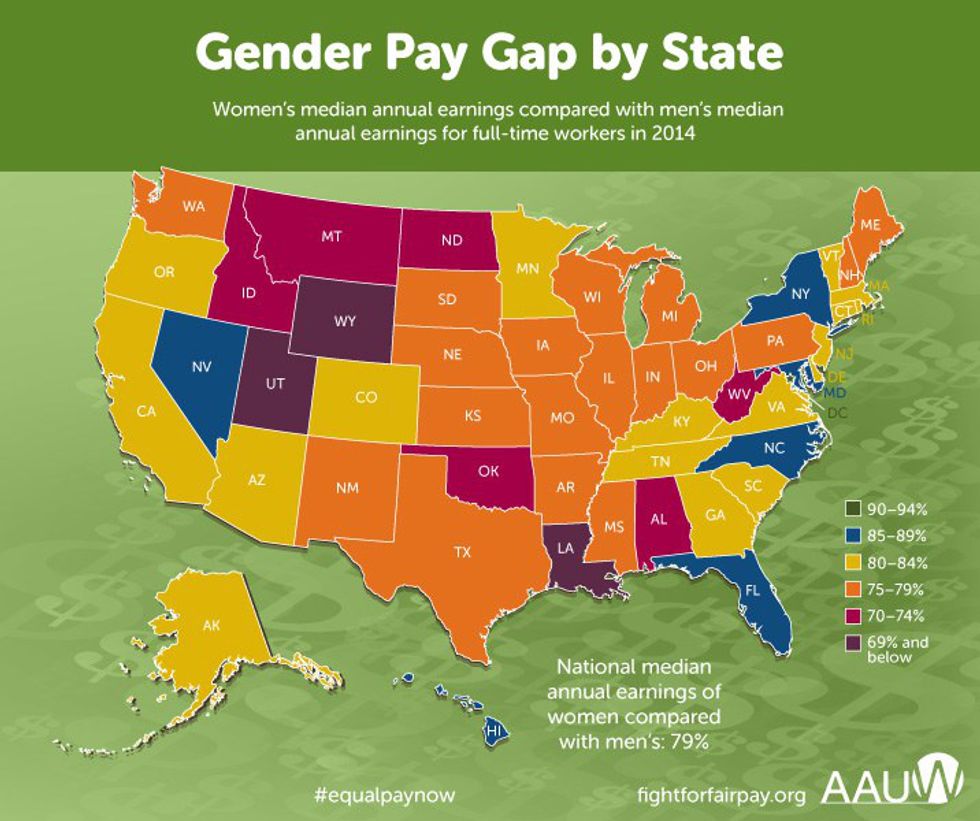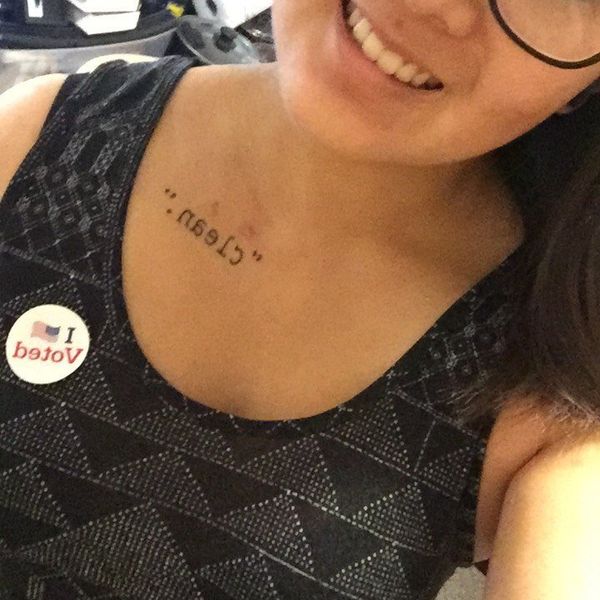The gender pay gap, or the difference in earnings between men and women, often for doing the same work, is an issue that has been brought up recently, especially in light of current presidential campaigns. While the figure used most commonly is the one stating that women make roughly 79% of a man's hourly wage, the correct number should actually be closer to 92%. According to a paper released by Cornell University economists Francine Blau and Lawrence Kahn, the primary gap is most likely linked to the difference in employment patterns. Blau and Kahn identified the facts that women are more concentrated in lower paying industries than men and they have slightly less on-the-job experience. However, the remaining gap is possibly linked to discrimination.
On April 12th, a day known as Equal Pay Day, or the date that symbolizes how far into the year women must work in order to catch up with a man's earnings from the previous year, Democratic Presidential Candidate Hillary Clinton took the stage to address this pressing issue. After being asked by a little girl if she would be paid as much as a male president, Clinton reiterated that white women make about 76 cents for every dollar that a man makes, while black women make 60 cents and Latina women get 55 cents to every dollar a man makes. Clinton stated "you can be paid far less than the minimum wage if you're a waitress, if you're a bartender, you work in a hair salon- you can be paid as little as $2 an hour. That puts so many women in a powerless position, they can't stand up for themselves, they can't speak out, because they're dependent on the goodwill of their customers and managers."
Despite an increasing number of entering the workforce over the past few decades, this pay gap still remains, however it is often assumed that this is not based on discrimination. These critics believe that the gap is instead driven by voluntary choices made by men and women- such as their occupation. Women are generally steered into pursuing educational, professional, or other gender-normative careers, neglecting to consider STEM related industries.






















